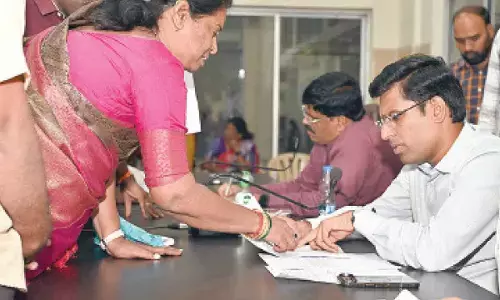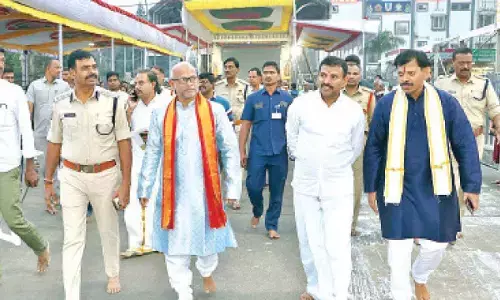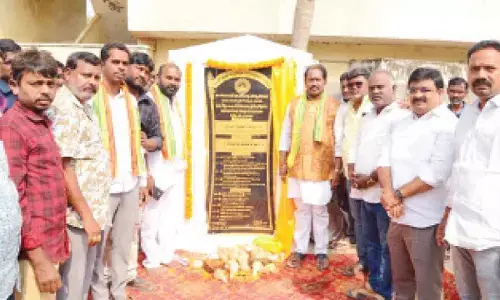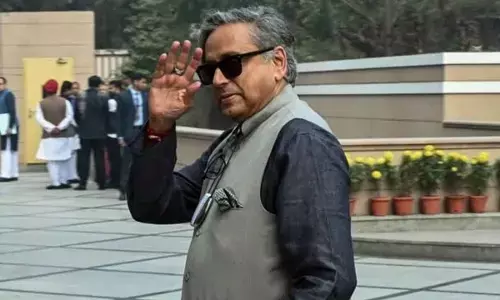Agriculture under an invisible emergency
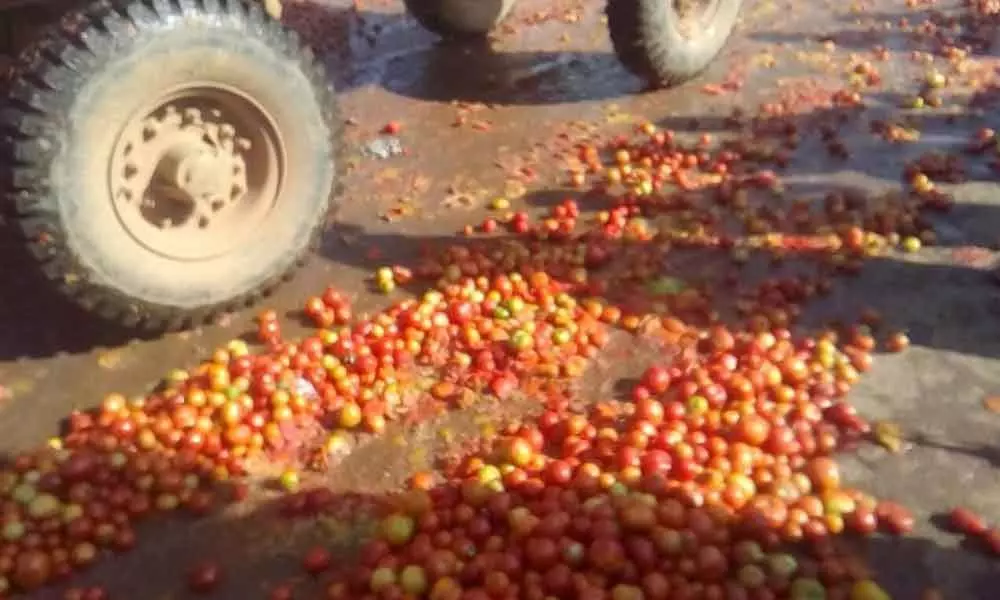
At a time when farmers strive to get the right price for crops, more money in their hands can help reignite the country's economy
In 2019, three weeks after the kharif harvesting season began, reports emerged that farmers are selling their produce at a price way below the minimum support price (MSP) announced by the government.
Except for a few crops like paddy and maize, market prices for most of the 14 kharif crops, including moong, urad, tur, nigerseeds, bajra, jowar, ragi, cotton, soya bean and sunflower, dropped 8-37 per cent below MSP.
While farmers incurred massive losses, the news did not trigger much outrage among the middle class. The reason is simple: If food prices remain low, household budget remains intact.
In fact, the government got a pat on the back for keeping food inflation under control, and nobody really bothered to know what happens to those farmers who produce that cheaper food.
This has not happened for the first time. In 2018 and 2019, farmers have been selling pulses, oilseeds and coarse cereals at prices 20 to 30 per cent lower than MSP and demanding procurement of crops they bring to mandis.
Even for wheat and rice, which enjoy assured procurement, they have been unable to get a price on a par with MSP, except at places like Punjab and Haryana where a vast and efficient procurement network exists.
But with the World Trade Organisation (WTO) breathing down its neck and autonomous liberalisation in progress, India is under tremendous pressure to dismantle the procurement network.
In October 2019, suddenly in the midst of the paddy procurement season, the Karnal district administration in Haryana imposed a ceiling on paddy purchase beyond its quota of 1.35 million tonnes for the season.
While no explanation was given, the government appears to be all set to go back on its commitment of buying every grain of wheat and paddy brought to mandi.
In Punjab, the Chief Minister has reportedly told a meeting of arhtiyas (commissioning agents) that he would not be able to assure that procurement operations next year run as smoothly as it used to all these years, pointing to a cut in public stockholding limits in future.
With granaries overflowing, cutting down on procurement seems to be the policy approach to reduce unmanageable food surplus. But what will happen to the millions who toil to produce bumper harvests?
Farmers throwing tomatoes, potatoes and onions on the streets is a recurring phenomenon. Add to it the denial of rightful price for most agricultural commodities, that too year after year, and the reasons for the continuing agrarian distress becomes all too apparent.
An analysis by Down to Earth magazine in its 16-28 February 2019, edition shows that a farmer earns only Rs 7,639 from a hectare of wheat against the production cost of Rs 32,644. This is a huge loss of Rs 25,005 per ha.
The loss is Rs 36,410 for paddy, Rs 33,688 for maize and Rs 26,480 for arhar.
The government is well aware of this. In its response to an application under Right to Information (RTI), the Department of Agriculture, Haryana, said that MSP for wheat in 2018-19 marketing season was Rs 1,840 per quintal (100 kg) against the estimated production cost of Rs 2,074, showing a loss of Rs 234 per quintal. The loss was Rs 830 for quintal of cotton.
While an improved procurement and higher MSP can help alleviate the situation, procurement price appears to be deliberately kept low.
For the Commission for Agricultural Costs and Prices (CACP), which works out MSP for 23 crops, the mandate is not only to provide an assured price to farmers but also to maintain a balance with international prices so that MSP does not fuel inflation.
The higher the food inflation, the more will be the pressure on industries to raise workers' wages.
This will increase the risk of economic reforms going awry. But what's worrying is farmers alone are left to bear the burden of keeping food inflation under check.
In 2018, the Organisation for Economic Co-operation and Development (OECD) and the Indian Council for Research on International Economic Relations (ICRIER) conducted a study, which illustrates the staggering cost farmers bear for subsidising food.
According to the study, between 2000-01 and 2016-17, farmers suffered a cumulative loss of Rs 45 lakh crore on being denied the rightful price for their produce.
This is a loss of some Rs 2.65 lakh crore a year, which farmers suffered because of trade restrictions, low prices and huge gaps in marketing policies, including shortfall in assured procurement.
This denial of rightful income increases farmers' dependence on farm credit, the primary reason for the spate of farm suicides.
Though the government has been withholding data related to this after 2016, data with the National Crime Record Bureau shows as many as 318,528 farmers committed suicide between 1995 and 2015.
The continuous slide in real farm incomes — as per NITI Aayog, real farm incomes have grown at less than 0.44 per cent a year between 2011-12 and 2015-16 — also creates conditions that forces farmers, particularly small farmers, to abandon agriculture and migrate to cities, looking for menial jobs.
Strangely, migration from rural to urban areas is seen as a sign of economic growth. In fact, the policy emphasis has remained on moving people out of agriculture into the cities which are in need of cheap labour.
(Courtesy: Down to Earth)












